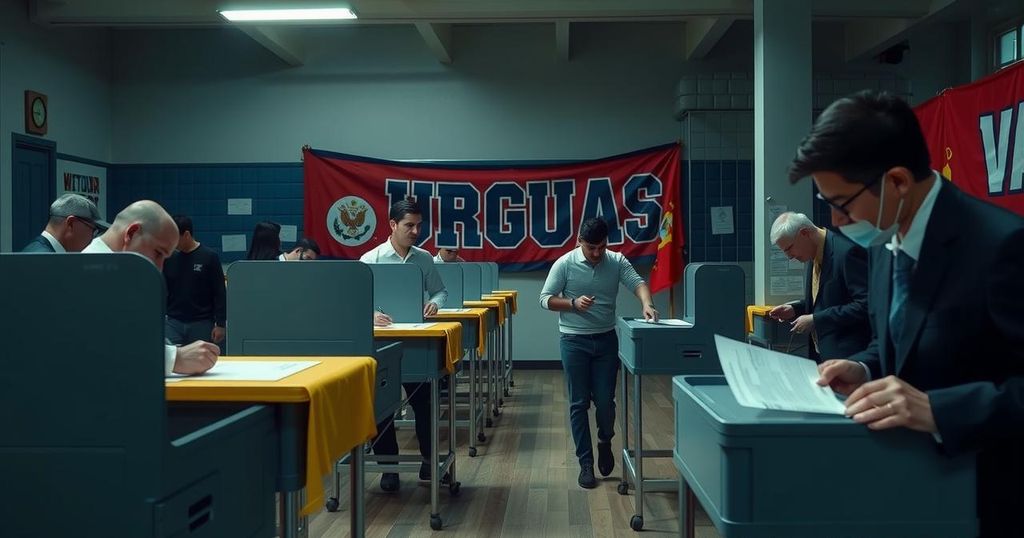Uruguay’s Presidential Run-Off: A Tight Race Between Moderates

Uruguay is holding a second-round presidential election between Yamandu Orsi of the Broad Front and Alvaro Delgado, a conservative candidate. Early polls suggest a very close race, with less than 25,000 votes potentially separating the two. Both candidates are attempting to garner support from smaller parties and those who previously abstained from voting, while economic factors loom large in the election’s significance.
In the peaceful nation of Uruguay, known for its beautiful beaches and progressive policies, a second-round presidential election is underway, featuring two centrist candidates. The opposition’s candidate, Yamandu Orsi, represents the left-leaning Broad Front and aims to adopt a “modern left” approach. He faces Alvaro Delgado of the conservative coalition, backed by a third candidate. Polls indicate a highly competitive race, with fewer than 25,000 votes potentially separating the two.
Election day will commence with ballot stations opening at 8 a.m. local time and closing at 7:30 p.m., with initial results expected shortly thereafter. The political scene in Uruguay is characterized by a lack of extreme polarization, allowing for a relatively low-tension campaigning atmosphere. Orsi previously garnered 43.9 percent in the first-round vote, while Delgado received 26.8 percent, strengthening his claim to continue the current administration’s policies under President Lacalle Pou, who cannot seek re-election due to constitutional restrictions.
Both candidates seek to capture the support of voters from smaller parties and those who did not participate in the earlier election. However, neither has introduced significant new proposals leading up to the election. With economic conditions impacting voter sentiment globally, analysts ponder whether Uruguay will follow the trend of declining voter support for incumbent parties. However, the strong national economy may favor Delgado as he attempts to secure re-election for his coalition.
“There are few indications that voters are clamouring for significant political change,” remarked Uruguayan analyst Nicolas Saldias. This statement succinctly reflects the current state and undercurrent of the political landscape as Uruguayans head to the polls.
Uruguay, a stable democracy in South America, is often recognized for its pioneering policies, such as the legalization of marijuana. As the nation approaches a presidential run-off election, it finds itself at a crossroads, with two centrist candidates competing in a race that is unusually close compared to the political climes of neighboring countries. This year’s elections are particularly significant, capping what has been a record year for electoral processes across the globe, while simultaneously mirroring the patterns of economic discontent observed in various parts of the world.
As Uruguay conducts its pivotal presidential run-off election, the outcome may significantly shape the political landscape of the country amid global trends of declining support for incumbent parties. With a balanced and relatively non-polarized political environment, the candidates must carefully navigate voter expectations against the backdrop of economic considerations. Ultimately, the results will determine whether continuity or change prevails in this engaging South American democracy.
Original Source: www.begadistrictnews.com.au







